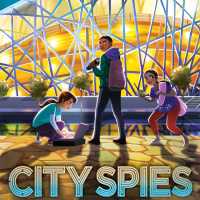Book Review: The Lathe of Heaven by Ursula K. Le Guin
 The Lathe of Heaven by Ursula K. Le Guin
The Lathe of Heaven by Ursula K. Le Guin
Genre: Science-Fiction
Publisher: Avon Books (March 1971)
Author Information: Website
Tiara’s Rating: 4 of 5 stars
The story takes place in Portland, Oregon; the year is 2002. Portland, and much of the world, is existing under very poor conditions. George Orr finds himself on a fantastic journey after being treated for a bad reaction to drugs he obtained illegally. Because his crime is seen as a relatively minor offense, since he obtained the drugs for personal use, George is referred to a type of rehabilitation program—Voluntary Therapeutic Treatment, or VTT for short—that involves him attending mandatory psychiatric evaluations. Even though Le Guin doesn’t go much into the detail of what tests and things George had to be part of, the doctors eventually send him to Dr. Haber, an expert on dreams and hypnosis—a man they send the “tough cases.”
George’s problem is this. He dreams what he calls “effective dreams” and things happen. He manifests new realities in his sleep, and in order to keep this from happening, he takes a drug cocktail to suppress dreaming. However, it’s not as simple as he dreams something and it comes into being much to the delight/horror of others. No, his dreams retroactively manipulate time, history, even science itself to build a continuum that has always been. Therefore, no one but George has ever been aware that time has changed itself.
However, after divulging this information to Dr. Haber, George becomes the doctor’s pet project once he realizes that George is not insane. Dr. Haber begins to feed George ideas while he’s hypnotized to ail the world’s current problems such as overcrowding, racism, and war. In each new reality, Haber becomes increasingly more powerful and fanatical about fixing the world to the horror of George. George knows the doctor means well, but the results are almost never as intended, and George firmly believes in the natural order of things.
To many people George encountered, even Dr. Haber and George’s love interest, Heather LaLache, there’s nothing remarkable about him. In fact, people seem to think that he’s not living more than just existing, describing him as passive, timid, and frail. He appears content to allow life to happen to him rather shaping it. However, George has profound moments that surprise people, showing them that he’s not as fragile and meandering as they believe. George doesn’t show much initiative, but his reasons for his complicity are rooted firmly in response to his ability. He lives his life as straightforward and uncomplicated as possible, but he is nuanced.
On the opposite end of the scale is Dr. Haber, a man who not only is proactive but eventually exhibits a great need to shape himself and his world. Dr. Haber isn’t an evil man, but he lacks the ability to grasp that his vision of a perfect world is hardly feasible without some sort of sacrifice, that there has to be some conflict in the world for balance. George’s dreams confirm this as there is always some point of contention that has to be in play in order to fulfill Huber’s vision.
Dr. Haber can’t fathom that one person cannot take it upon himself to right what he perceives as the world’s flaws. His blindness to this fact is exemplified by his disregard of George’s fears. He feels that George’s ability isn’t something that George should withhold from the world. George’s fears combined with feelings about his trust being abused are not as important as, what Dr. Haber considers, the needs of the many. George and Dr. Haber presented countering arguments to the question of moral obligation/negligence while Heather served as a variable for readers to observe as she changed from scenario to scenario.
Speaking of Heather, I was pleasantly surprised to find that I liked the romance in this book. When it first became obvious that Heather was going to catch George’s interest, I feared that the romance might feel shoehorned into the book and would detract from the main story. Heather served a purpose as someone who’s swept along in Dr. Haber’s game and presents another view of how George’s dream affect those around him. It helped that the romance blossomed around these changes for better or for worse, and for most of the book, it’s just a cautious dance between two people who aren’t sure about their place in the world.
Even though I loved this book, the scenarios seemed to get more and more outrageous a bit as the story progressed. I preferred the subtle shifting from the beginning to the comical and outlandish scenarios George is faced with later in the book. It’s hard to concentrate on how thoughtful the story is when you’re reading a scene that reads like it came right out of a pulpy science fiction magazine. Maybe this was very deliberate on Le Guin’s part to mirror Haber’s increasing fanaticism in being the world’s savior, but that’s only a minor nitpick.
My first experience with Le Guin was during a college literature course where we read and analyzed her short story The Ones Who Walk Away from Omelas which explored some similar ideas on a smaller scale as this book. It was always a story that haunted me throughout the years. To find out Le Guin published a novel that expanded on some of these ideas made it a must read for me.
For the most part, I enjoyed this novel. This book very much questioned moral ideas like “Is it ever okay to play God?” and “Should the needs of the many always outweigh the needs of a few?” It was a story that asked the readers to ponder these questions as we followed George on his journey. It was much more than just a science fiction novel.













Good review! I bought a copy a few weeks ago, and am now looking forward to it. It’ll be my first non-fantasy Le Guin experience.
LikeLiked by 1 person
I really enjoyed it. This was my first non-fantasy experience with her, too, and I’ll admit that as much as I love her, I wasn’t sure at first with this book. However, I really loved this book. I couldn’t put it down. I hope you enjoy it as well when you get around to reading it.
LikeLiked by 1 person
This was one of the books that I read for a psych project way back when I was an undergrad. This was the first thing I’d read by Le Guin. Dr. Haber was a big point of discussion among us. Even with it’s sci-fi elements, we looked at it as more of a warning to not be a Haber, be a real advocate for your clients. I’ve read some of Le Guin’s fantasy, but this book continues to be one that I keep on my shelves and read from time to time.
LikeLiked by 2 people
Don’t be a Haber. Did you get that printed on shirts, too, as undergrads? I guess a book like this, despite being science fiction, would still be a great and unique study for young soon-to-be psychologists. It made me think of my own time spent in psychology classes researching dreams and sleeping. I can only imagine how something like this would inspire a started psych class. This does feel like the type of books my psych teachers would’ve loved. All my psych professors were very… eccentric, though.
LikeLike
It’s never too late to have “Don’t Be A Haber!” on a shirt. I’ll send you one, too.
It was very different and was used in our project when we were learning about dreams, sleep patterns, and their influence on the mind. You would have loved it.
P.S. I happen to think that I am very well adjusted, ma poule.
LikeLiked by 1 person
Nice review. I love Ursula Le Guin’s work, though I only started reading her science fiction last year (The Left Hand Of Darkness, which is a haunting story in itself). The Lathe Of Heaven is on my wishlist, so I’m looking forward to reading it once I get it.
LikeLiked by 1 person
Thank you! I don’t think I’ve heard of the Left Hand of Darkness. Or no, the title does sound familiar and I think I read a review for it a while back on Goodreads, but I didn’t realize she wrote it. Her writing just has a way of making its mark on a reader. I’m running to Amazon right now to check this out.
LikeLiked by 1 person
Left Hand of Darkness is wonderful. It convinced me to read more of Le Guin’s science fiction. I highly recommend it.
Oh, I totally forgot I’d read Changing Planes, too! That’s closer to a collection of short stories than a novel… but even calling it “a collection of short stories” doesn’t quite fit. She explores the idea of how airports can be portals to different civilizations in outer space, and then each “story” shares her “explorations” of each world. Maybe a “science fiction” travel guide done Le Guin style is the best way to describe it… But I really enjoyed that, too.
LikeLike
Okay, that sounds pretty amazing and very creative. I had no idea that she had a considerable amount of scifi out there. Looks like I’ll be making two purchases today when I said I wasn’t going to spend money on books for a bit until I hit more of my backlog. Thanks for mentioning them. Now I’m pretty excited about starting them.
LikeLiked by 1 person
I read a few Leguins for uni but that was years ago
LikeLiked by 1 person
That’s how I was introduced to her, too. Then, I only ended up reading her fantasy. This was my first science fiction book by her.
LikeLike
I’m not sure about the making realities thing. I like to know what’s real and what isn’t. I’ve been meaning to read Lee Guin though. I’m not sure if I’ll like such a passive protagonist.
LikeLike
What’s real and isn’t real is very clear in her book. There’s no muddiness to the created reality to confuse the reader. It’s very straightforward. George is somewhat passive, but he has his reasons which remain rooted in what he can do. However, he still has different parts of his personality for readers to consider. His passive nature is just the first thing the readers (and others in the book) notice, but then, come to realize there’s more going on with him.
I think more people know her for her Earthsea fantasy series and might be something to consider instead of her science fiction if this doesn’t sound like your thing. 🙂
LikeLiked by 1 person
I didn’t know about this one but it sounds intriguing (yes I can say that about a sci-fi book). Well it’s not space, not aliens, so it’s usually ok. Plus I’m quite curious about the dreams. thanks for the discovery!
LikeLike
Don’t forget I said that some outlandish things do happen as the book goes on, so do keep that in mind. LOL. 😉
LikeLike
I walked into this expecting something fantastical, and while it did get a bit outlandish, as you say, I was so impressed by its initial subtlety. The entire concept of his effective dreaming seems implausible, and the way it changes *everything* would make it impossible to track without driving George insane, but Le Guin covers this too. She continues to amaze me with the dichotomy of depth and simplicity she instills in her work. She can say so much with so little. Every time I read books that promise me trilogies because that’s the best way to sell books nowadays, I think of Le Guin and find myself longing for days when people told stories, not word counts. (Not that long books are bad, per se, but Le Guin proves that less can very much be more.)
LikeLike
Pingback: Audiobook Review: The Sword of Shannara by Terry Brooks | The BiblioSanctum
Pingback: Top Ten Tuesday: Top Ten Characters You’d Like To Check In With | The BiblioSanctum
Pingback: Top Ten Tuesday: Valentine Themed Freebie | The BiblioSanctum
Pingback: A BiblioSanctum Co-Review: Dark Matter by Blake Crouch | The BiblioSanctum